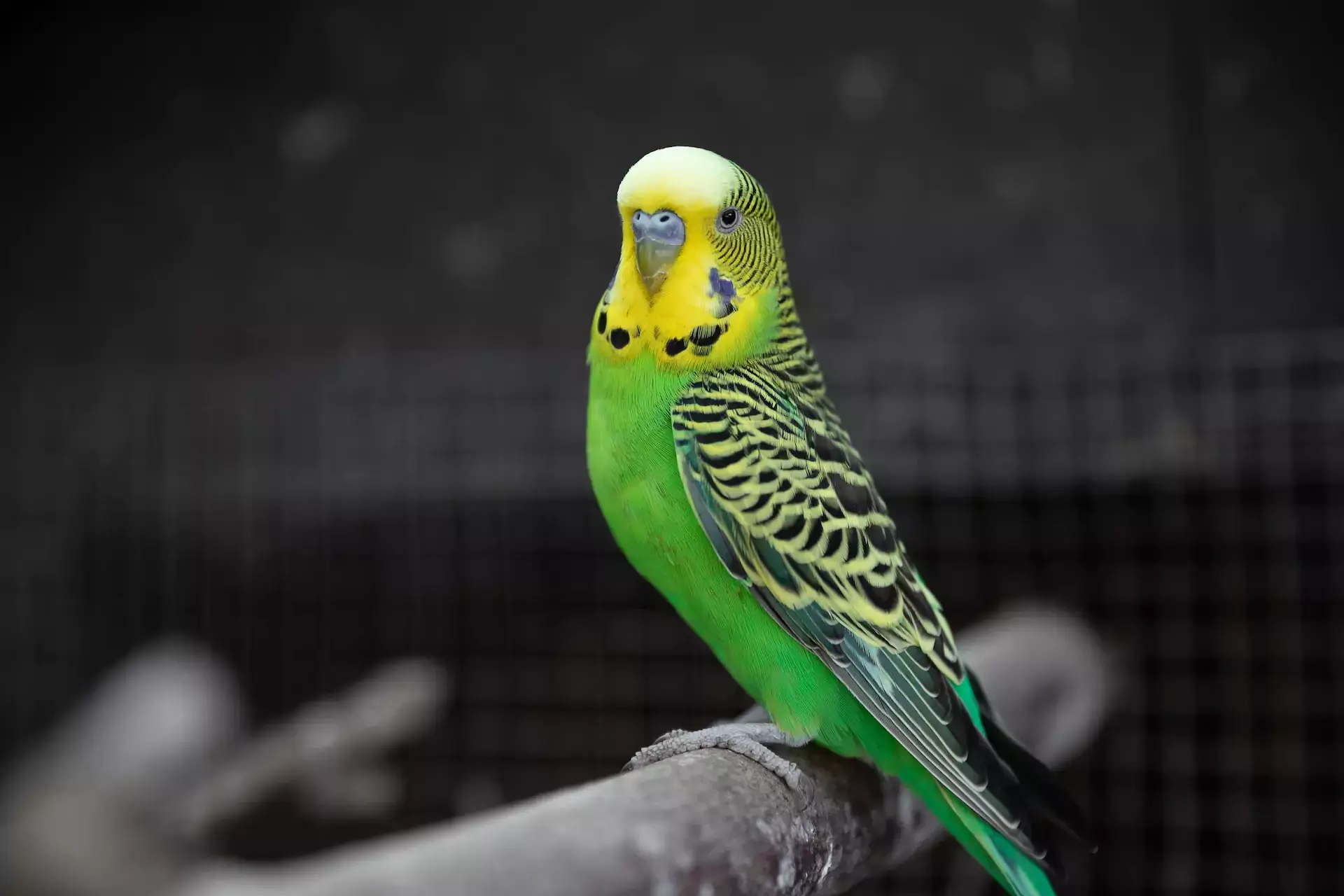Happy New Year! Our first pet awareness item for 2024 is already getting started: it’s Adopt A Rescued Bird Month! While bird ownership is not for everyone, our feathered buddies have earned a loyal following. We love seeing Polly get a loving home. As supporters of animal welfare, we applaud those who choose to adopt rescued animals. We strongly believe that every animal deserves affection, compassion, and proper care. However, it’s important to do lots of research and carefully consider your decision before adopting any pet. This goes double for birds, as they have unique care needs that new owners may need to adapt to. A local Richmond, IN vet offers some insight on this below.
Why Adopt A Rescued Bird?
Birds can make wonderful companions and beloved pets. They’re both fun and adorable, and despite their small size, they have a knack for stealing our hearts. Each bird has its own distinct personality; some are energetic and playful, happily singing, dancing, and playing with their owners. Others are calm and peaceful. Of course, some of our feathered buddies are, well, a bit extra. One thing all of these pretty creatures have in common? They have the capability to develop strong connections with their human caretakers. Giving a shy or gentle pet a second chance can be an incredibly fulfilling experience.
How Do I Choose A Rescued Bird?
Birds vary quite drastically with things like volume, cage requirements, size, and life expectancy. Do plenty of research, and narrow down the type of bird that will work best in your house by taking into account things like their volume, cage requirements, size, personality, and life expectancy.
Here are some good beginner birds:
Finches: Unlike other birds, finches live in small flocks, and bond more with their flock mates than with their owners. They’re a good choice for someone who wants a low-maintenance pet.
Budgies: Small, playful, and utterly adorable, Budgies make wonderful pets for children. They don’t require as much room as some of our larger friends, and they are incredibly lovable.
Lovebirds: These cute little guys are friendly, sociable, and super sweet. You should get at least two, though. As their name implies, lovebirds are very social and do not do well alone.
African Grey: if you want a pet that will keep you on your toes, It may be the African Grey you’re looking for. Just make sure you’re ready for a parrot. They are very smart, and if bored, can get into a lot of mischief.
This is of course just a small sampling. There are dozens of types of birds that make suitable pets. The Cockatiel, Parrotlet, Canary, and Pionus Parrot also make good beginners. We would recommend doing lots of research, and looking at different breeds to determine what is the best bird for you.
Here are some specific factors to consider:
- Space Requirements
- Companionship Requirements
- Size
- Life Expectancy
- Volume
- Speech Capacity
- Trainability
- Play/Activity Needs
- Friendliness
Do lots of reading and consult your Richmond, IN veterinarian for advice.
Choosing A Rescued Bird
Breed isn’t the only factor to consider. Birds all have their own personalities. It’s important to make a connection, but it’s also important to make a good match. Observe your potential pet carefully before choosing. Find out about Polly’s history and medical background, and see how she interacts with you and with others. You’ll also want to get an overview of her health.
That said, it’s important to choose the bird that’s right for you. Some rescued birds have health problems, or they may be particularly aggressive or unsettled due to trauma. These guys definitely need loving homes, but may be too much for someone new to bird ownership. Be realistic!
What To Expect When Adopting A Rescued Bird
It’s important to be prepared for a few mishaps, and to expect Polly to need time to adjust. Birds are one of the most frequently rehomed pets. In fact, some parrots are rehomed as much as six times during their lives. That’s particularly sad, given how close they get to their humans.
In some cases, birds get rehomed simply because they’re noisy. Not everyone wants a pet who sings Diana Ross songs in the middle of the day. Other times, birds are rehomed because of behavioral issues. These often result from improper care, which itself often stems from a lack of understanding. It’s unfortunately not uncommon for people to adopt birds without understanding the amount of care and attention they require.
Provide A Great Birdcage
Polly will need a comfortable and safe cage. The type and size of cage birds require depends on their breed, so research is needed here as well. Before purchasing a cage, measure the area where you intend to put it, so you know how much room you have to work with when shopping.
We would also advise getting the biggest cage you can afford. It’s a one-time expense, so go ahead and splurge!
It can be tempting to buy a secondhand cage to save money, but be careful: if the cage’s previous resident was sick, it may not be safe.
How Can I Make My Home A Safe Place For A Rescued Bird?
We can’t overstate the importance of bird proofing! Many common household items are dangerous to birds. That list includes mirrors, fireplaces, fans, window treatments, candles, and small or sharp objects. Additionally, things like kitchen utensils, full sinks or toilets, and many plastic objects are also unsafe. You will also need to ensure good air quality. Consult your Richmond, IN veterinarian for more information.
How Can I Bond With A Rescued Bird?
Our feathered pals can be quite timid. They can also get very attached to their humans, so keep this in mind. Polly may feel sad and depressed at being separated from her former master, so it may take her a while to adjust.
The following tips will help you win your winged pal’s heart:
- When you bring Polly home, keep her in her cage for a few days. Our feathered buddies need freedom to play and explore, but they also need to feel safe. This could take time. (It may take two weeks for your pet to feel safe.)
- Hang out with her! One thing that can help Polly feel safer is to put a comfy chair near her cage. Sit there when you want to read, scroll on your phone, or watch TV. This will help your new buddy get used to you.
- Talk to your new pet! Polly will pick up on your tone of voice when you speak to her. Be friendly and cheerful.
- Be very gentle! It’s understandable that you may want to pet or cuddle Polly, but it’s important to let her feel safe before you try to handle her. Do not grab her or stick your hand in her cage. Move slowly around your new pal, and offer treats and toys.
- Food! Speaking of treats … a yummy snack can help you to bond with your pet and build trust. You can offer a variety of bird-safe fruits and vegetables, millet spray, treat sticks, or raw pasta to your new buddy. Just stick with safe options. Your Richmond, IN veterinarian can provide specific suggestions.
- Don’t force things. Polly will need time to learn to trust you. Love takes time! Birds can become very attached to their owners, but that bond does not develop overnight.
Conclusion: Adopting a rescued bird can be very rewarding, but it’s important to do plenty of research first. Look into your pet’s life expectancy and care needs, and ask your Richmond, IN vet for advice.
If you have questions about caring for a rescued bird, please contact us. As your Richmond, IN veterinary clinic, we’re here to help!








